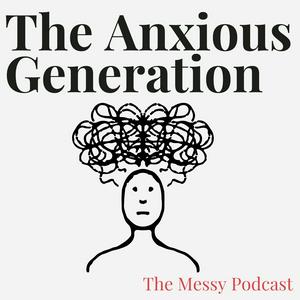S3E5 | What Parents Can Do Now | The Anxious Generation by Jonathan Haidt | The Messy Podcast
Here is a description for your podcast, based on the source you provided:The podcast explores the shift in parenting styles, contrasting the "carpenter" approach with the "gardener" approach. It delves into how contemporary families have become more mobile and smaller, which has caused a decline in local wisdom and has led to reliance on experts. The podcast promotes the idea of parents creating a secure, loving, and safe space that allows children to grow and explore, instead of trying to mould them.The podcast offers suggestions for parents of children of all ages:For parents of young children (ages 0-5), the podcast will discuss the importance of real-world experiences, including plenty of playtime, social diversity, and a secure loving base. It will cover limiting screen time and promoting interaction with other children and the real world.For parents of children in elementary and middle school (ages 6-13), the podcast will cover ways to encourage social learning and real-world experiences. It will also cover how to reduce overprotection and encourage off-line activities like walking to school, free play, and camping. Additionally, the podcast will explore how to help parents navigate the challenges of screen time, social media, and the delay of social media accounts until the age of 16.For parents of teens (ages 13-18), the podcast will explore how to increase their mobility, rely on them at home, encourage them to find part-time jobs, find ways for them to nurture and lead, consider a high school exchange program, encourage bigger thrills in nature, and take a gap year after high school. The podcast will also discuss how to transition teens from smartphones to basic phones, and how to monitor their social media use.The podcast aims to help parents become more confident and competent by engaging with the real world and letting teens grow more confident and competent by engaging with the real world. It encourages parents to allow their children more unsupervised free play, delay giving them their first smartphone, and increase their engagement with the real world and embeddedness in communities. The podcast will teach you how to raise children to become independent, confident, and less anxious.

